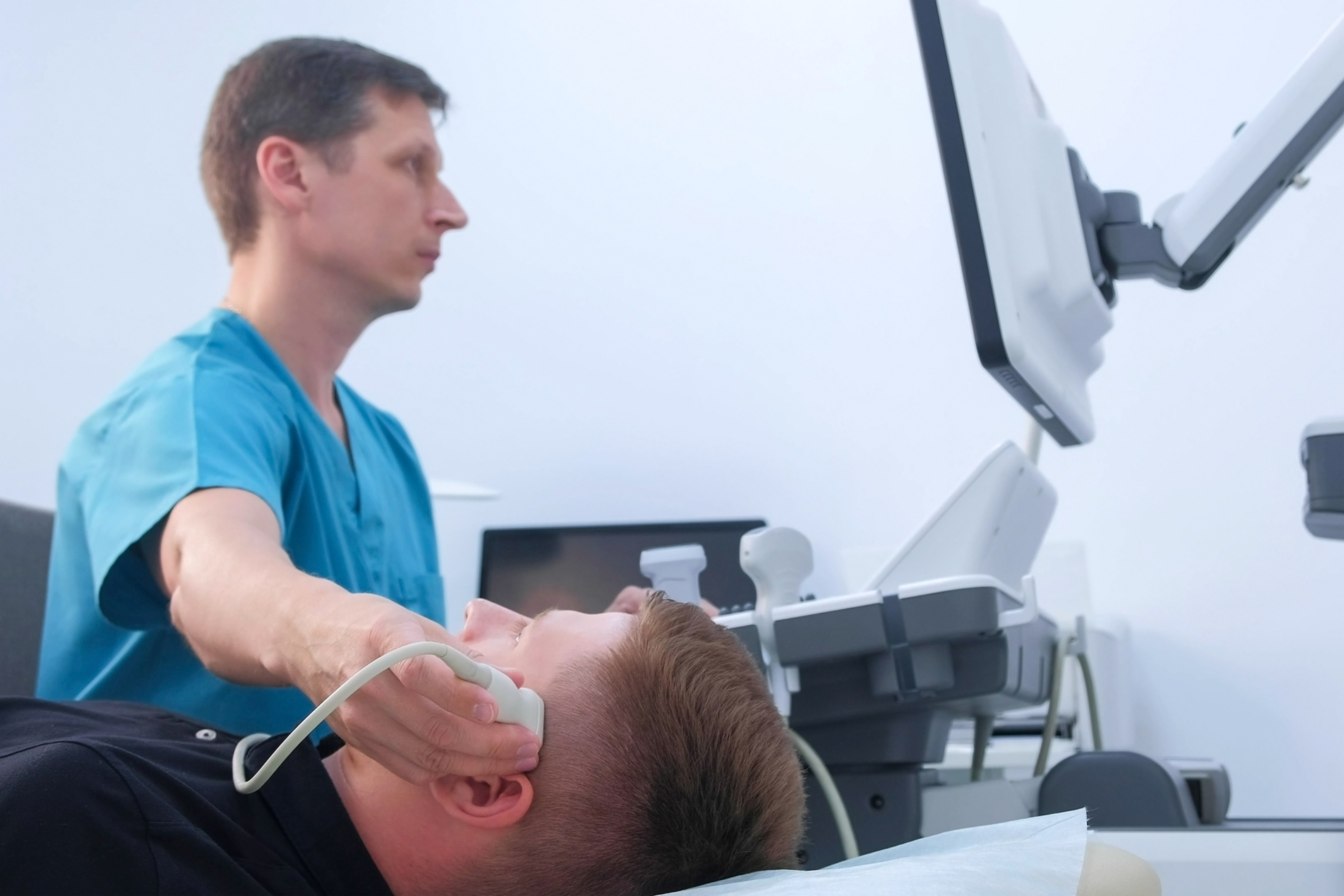
AUSTIN, Texas — Patients suffering from depression, anxiety and trauma-related disorders experienced significant relief from their symptoms after a new treatment that uses sound waves to modulate deep brain activity, according to new research from Dell Medical School at The University of Texas at Austin.
The study, published this month in Molecular Psychiatry, demonstrates that low-intensity focused ultrasound technology can safely and effectively target the amygdala — a brain region known to be hyperactive in mood and anxiety disorders — without surgery or invasive procedures.
“Participants showed marked improvements across a range of symptoms after just three weeks of daily treatments,” said Gregory Fonzo, Ph.D., senior author of the study and assistant professor in the Department of Psychiatry & Behavioral Sciences at Dell Med. “What makes this approach revolutionary is that it’s the first time we’ve been able to directly modulate deep brain activity without invasive procedures or medications.”
In the double-blind study, 29 patients with various mood and anxiety disorders received MRI-guided focused ultrasound to the left amygdala. The results showed both immediate reductions in amygdala activity, and after three weeks of daily sessions, patients experienced clinically significant improvements in negative affect and symptoms of depression, anxiety and PTSD.
“For decades, the amygdala has been a target of interest, but access has required either brain surgery or indirect approaches through cortical stimulation,” said Fonzo. “This technology opens a new frontier in psychiatric treatment, potentially offering relief to patients who haven’t responded to traditional therapies.”
The treatment was well tolerated with no serious adverse events, suggesting a promising safety profile as researchers move toward larger clinical trials.